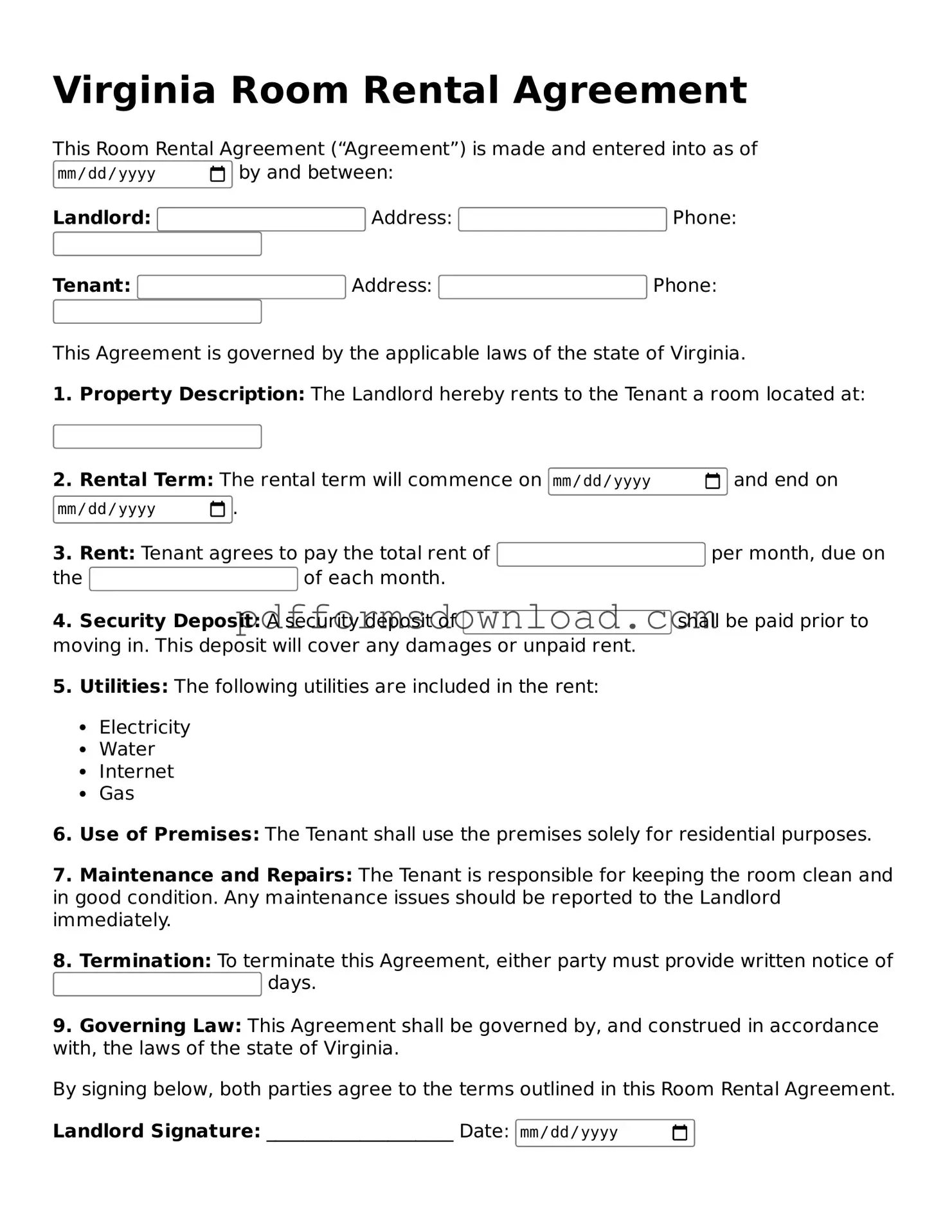Printable Virginia Room Rental Agreement Form
The Virginia Room Rental Agreement is a legal document that outlines the terms and conditions between a landlord and a tenant for renting a room in Virginia. This form serves to protect the rights of both parties and ensures clarity regarding rent, duration, and responsibilities. To begin your rental process, consider filling out the form by clicking the button below.
Make This Document Now

Printable Virginia Room Rental Agreement Form
Make This Document Now

Make This Document Now
or
Free PDF File
Your form is almost ready
Complete your Room Rental Agreement online — edit, save, and download easily.